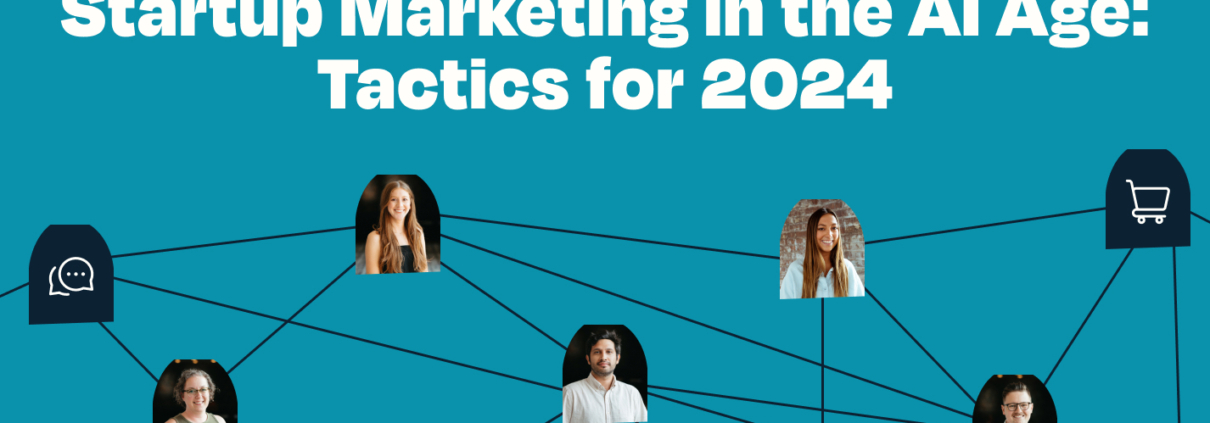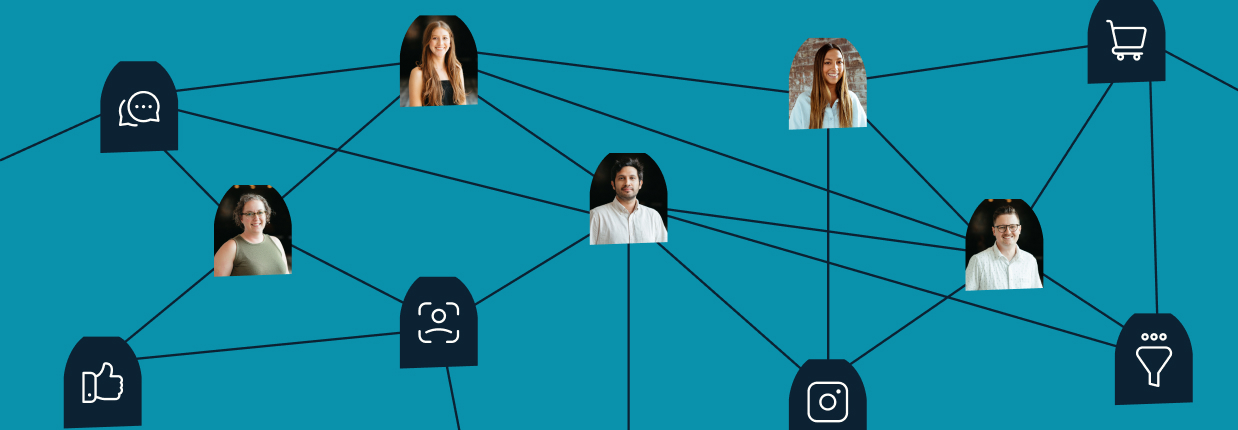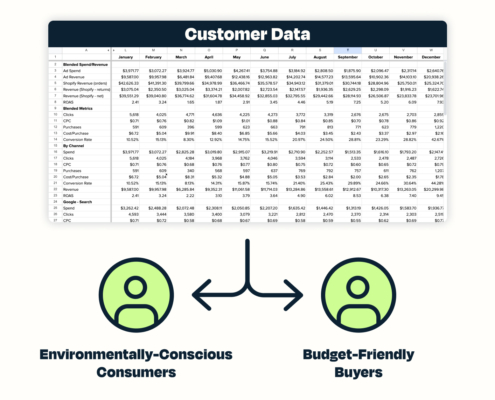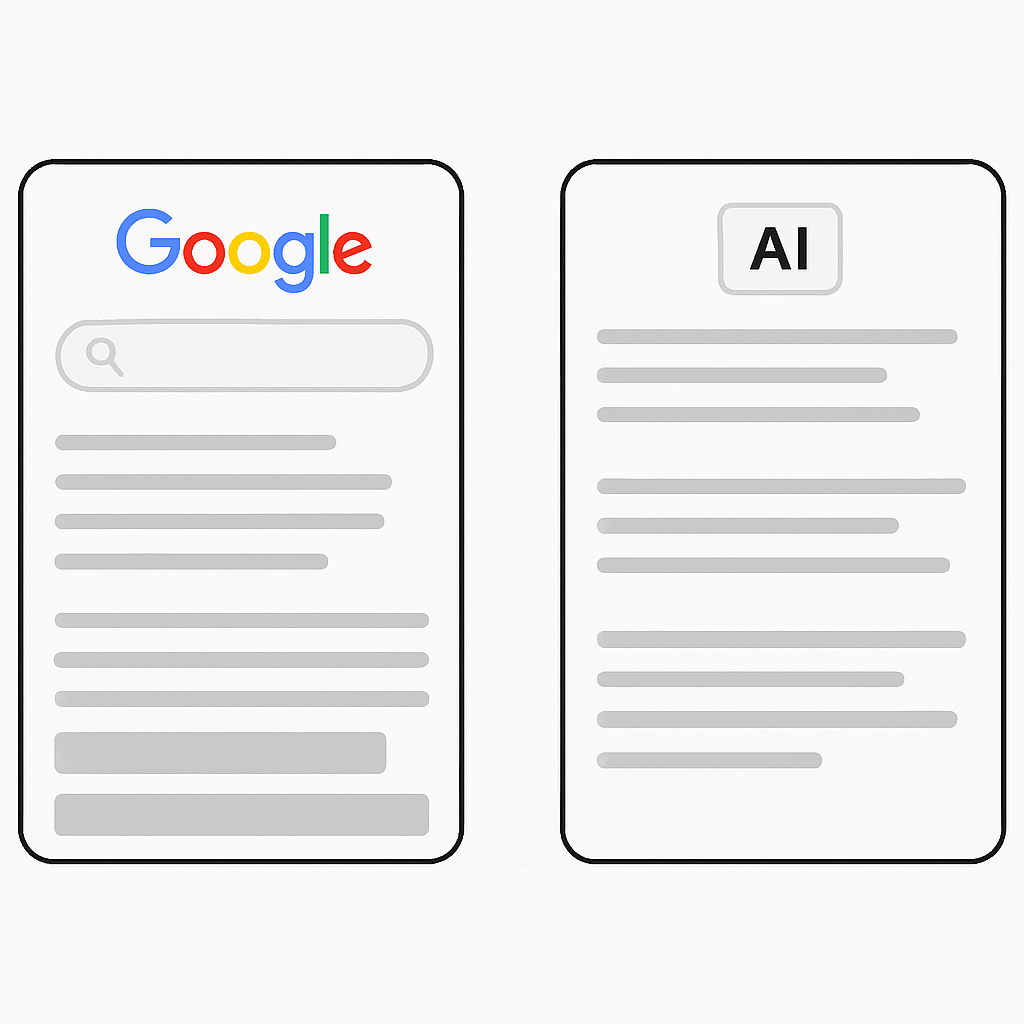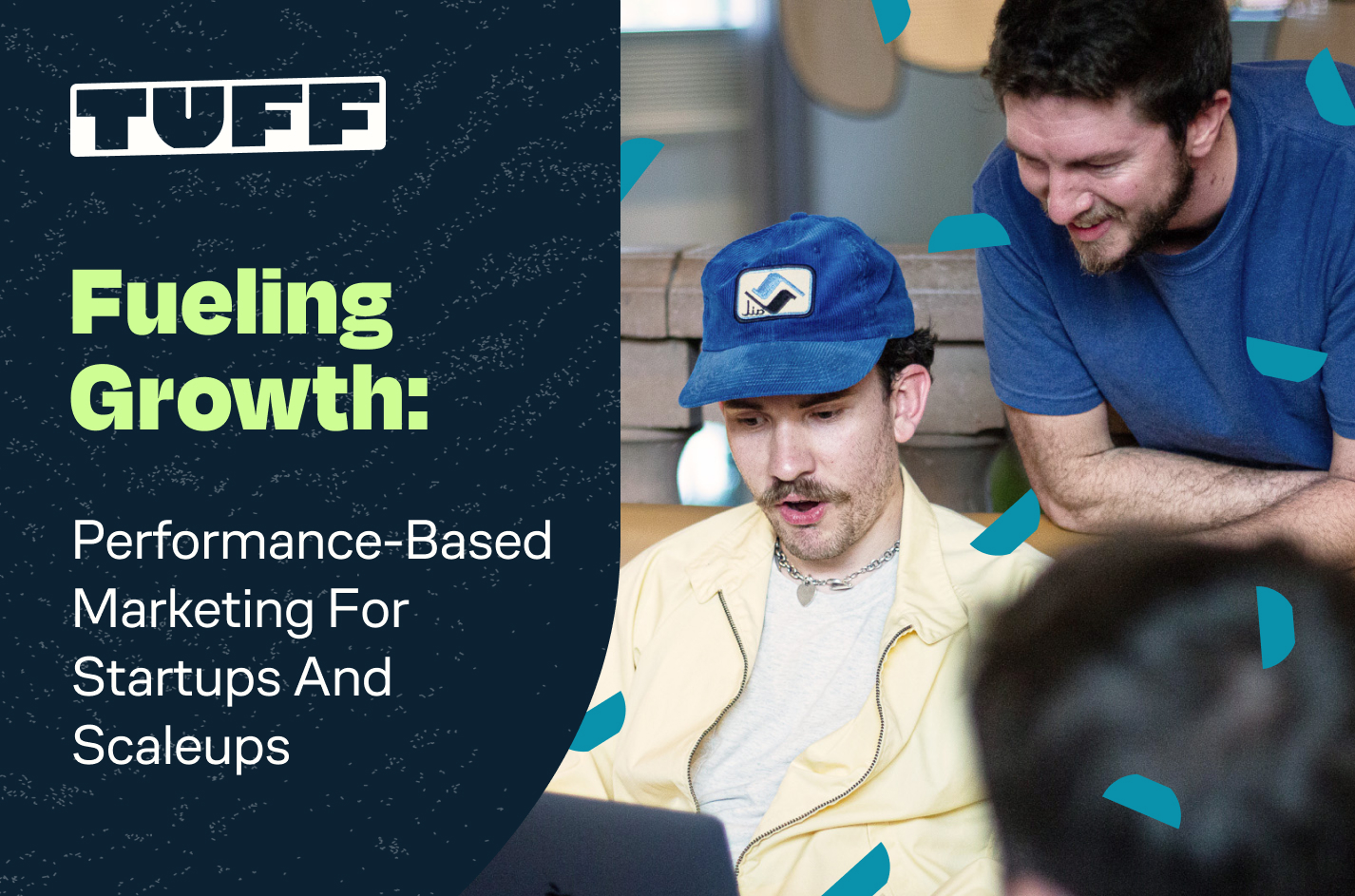Startup Marketing in the AI Age: Tactics for 2024
Here’s one of the biggest challenges our startup partners face: Hitting growth goals with limited resources.
Now more than ever, marketers are expected to do more with less. As a marketing agency that works with startups of all stripes, we’ve seen how AI can be a game-changer for these teams, helping them work smarter and get more done.
According to a recent study by LinkedIn and Ipsos, nearly half of B2B marketers are now using AI in their strategies. And guess what? Interest in AI courses is still skyrocketing. People want to learn how to use it, particularly using tactics under the umbrella of “Generative AI.”
Our startup partners, whether they’re in education, fintech, e-commerce, or elsewhere, often wonder how they can tap into AI without sacrificing their brand’s identity. So, we’ve put together a no-nonsense guide full of the latest trends, practical tips, and best practices. It’s all about helping startups stay ahead of the curve and keep their edge in the market. Let’s dive in.
Using AI to Redefine Startup Marketing
AI has quickly become a cornerstone of modern marketing strategies, providing invaluable insights and predictive capabilities. Using machine learning and natural language processing, AI has the ability to sift through data, uncover patterns, and forecast outcomes like never before. Let’s take a closer look at the latest AI trends reshaping digital marketing and discover how you can leverage AI to supercharge your startup marketing efforts.
Personalization and the Customer Experience with AI
Successful marketing is never one-size-fits-all, and in order to really see growth and results, you’ll need to personalize your messaging to each audience. The good news—AI has completely changed the personalization game in startup marketing.
Example
For instance, if your startup specializes in eco-friendly home products, AI can help you comb through customer data, such as purchase history and website interactions. Through AI analysis, you can discern patterns indicating preferences and behaviors.
Armed with this insight, you can craft marketing messages that resonate with different segments of your audience. For environmentally-conscious consumers, emphasize the environmental benefits of your products, while for budget-conscious buyers, highlight the cost-effectiveness and potential savings.
Understanding all of the ICPs (ideal customer profiles) that fall within your target audience requires extensive research, and tailoring your marketing message to every ICP can be challenging. But AI can help you better understand your ICPs by analyzing individual preferences, behavior, and context.
For every partner at Tuff, we’ll conduct an audience deep dive when onboarding a new startup or scaleup partner. These deep dives give us an opportunity to work directly with our clients and get an inside look at their target audience.
During this process, we’ll often use AI to help us gather information about each audience segment. We’ll then use this data to build out customer personas, value propositions, and message testing frameworks. You can learn more about our strategic messaging process here.
AI-Powered Content Creation and Distribution
Creating captivating content for your startup—from blogs to social posts, emails, and ads—can be made simpler with AI platforms. (Check out our curated list of our preferred AI content production companies.) While our Content and Creative Strategists form the core of Tuff’s content production, they often enhance their efforts with AI for increased efficiency.
Our creative process at Tuff is rooted in data. This means that we always analyze our partner’s ad account data before developing creative. During this process, we’ll take a closer look at which type of content and messaging has historically resonated best with the partner’s target audience. We’ll then use those insights to inform our next round of creative.
We also rely on AI to keep us aligned with emerging channel-specific trends, informing our creative tests effectively. Additionally, we leverage AI to conduct thorough analyses of our clients’ competitors’ social ads, gaining valuable insights into effective creative approaches.
This data-driven approach extends to our content creation as well. While our blogs and case studies are always written by Tuff team members, we utilize AI to streamline research and develop content outlines, enhancing our efficiency in delivering impactful content. In short, it allows us to jump right into writing.
Predictive Analytics for Strategic Decision-Making
When building a growth marketing strategy for a startup, it’s impossible to predict the results and how much your advertising is going to cost without historical data. In this case, marketers often use predictive analytics to help them make those initial strategic decisions.
By using AI to gather data, analyze patterns, and foreshadow future trends, predictive analytics can help you forecast what your campaign costs and ROI will be. This information is super helpful for marketers trying to determine which channels they should activate and how much budget they need to allocate to each channel based on the predicted outcome.
Chatbots and Conversational Marketing
Many of our startup partners have implemented AI chat bots on their websites to engage with customers and enhance the user experience. These conversational chatbots utilize natural language processing to interact with customers in real time and deliver personalized responses to each user. HubSpot recently shared their top 18 AI chatbot recommendations that integrate directly with existing HubSpot workspaces.
Navigating Ethical Considerations in AI-Driven Marketing
In the realm of AI-driven marketing, startups face the challenge of balancing efficiency with ethical considerations. As you lean into AI to develop marketing plans and streamline processes, it’s crucial to consider ethical standards to maintain trust with your audience (or partners). Here are four steps startups can take:
- Bias Mitigation: Utilize AI tools to analyze data and uncover biases in marketing strategies. Regularly review and adjust algorithms to ensure fair and unbiased outcomes in targeting and messaging.
- Diversity and Inclusion: Leverage AI to gather diverse perspectives and insights for marketing campaigns. Ensure that AI-driven decisions reflect the diversity of your target audience to avoid exclusionary practices.
- User Autonomy: Implement AI-powered personalization strategies that respect user privacy and autonomy. Provide clear opt-in/opt-out options and transparent data usage policies to empower users in controlling their information.
- Collaborative Approach: Talk with industry peers, follow experts, and collab with stakeholders to navigate ethical concerns in AI-driven marketing. Share best practices, insights, and lessons learned to collectively advance ethical standards in the field.
By considering ethics in your AI-driven marketing strategies, startups can use AI effectively while maintaining trust with their audience, ultimately building stronger connections and moving the industry in a positive direction.
What’s Next?

Hey there! I’m McKenzie, a Growth Marketer at Tuff who lives in Nashville, TN. After years of experience working at agencies in paid media, I found my way to Tuff in 2021 to work with startups, scaleups, and established brands on full-funnel growth strategies rooted in data. When I’m not working, you can find me taking my dog Burley to the park, traveling with friends and family, or winding down at the local yoga studio. Let’s connect.
